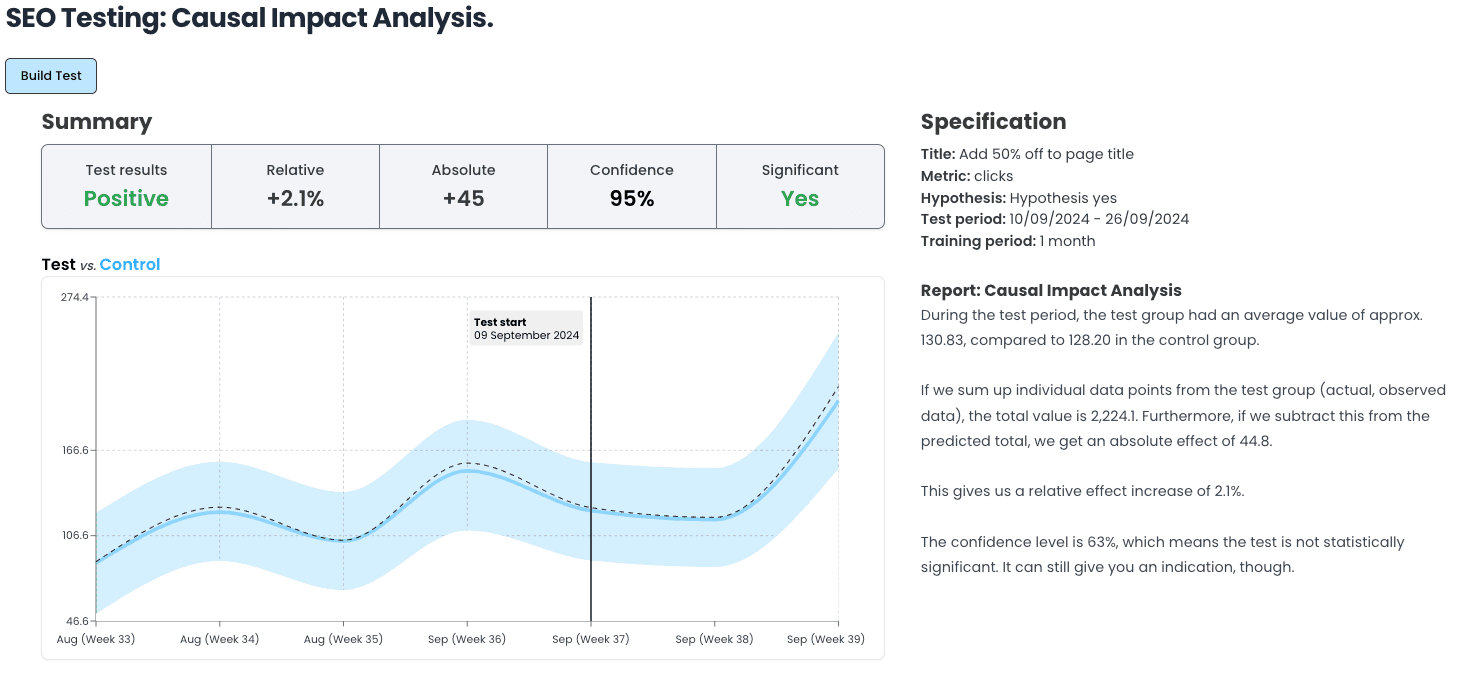Smarter SEO Testing
Backed by data
Increase organic traffic with testing and experimentation. Execute on-page SEO changes directly to website.
Perform A/B split test or time-based SEO testing to remove guesswork.

Hypothesis + Test = Win
Try new Meta tags to check what works best in search results.

Starter
$ 49/month
Free trial: 14 day
Perfect for small websites.
- 1 website
- A/B Split Testing
- Meta Tag Editor (500 pages/website)
- Keyword Tracker
- Reporting
- Javascript pixel
- Customer Success
Optionally add:
Business
$ 119/month
Free trial: 14 day
Everything in Starter. For medium websites.
- 5 websites
- A/B Split Testing
- Meta Tag Editor (1000 pages/website)
- Keyword Tracker
- Reporting
- Javascript pixel
- Customer Success
Optionally add:
Power
$ 349/month
Free trial: 14 day
Everything in Business. For large websites.
- 20 websites
- A/B Split Testing
- Meta Tag Editor (5000 pages/website)
- Keyword Tracker
- Reporting
- Javascript pixel
- Customer Success
Optionally add:
From the blog
Our latest blog posts. Check out our blog.
metamanager
metamanager


